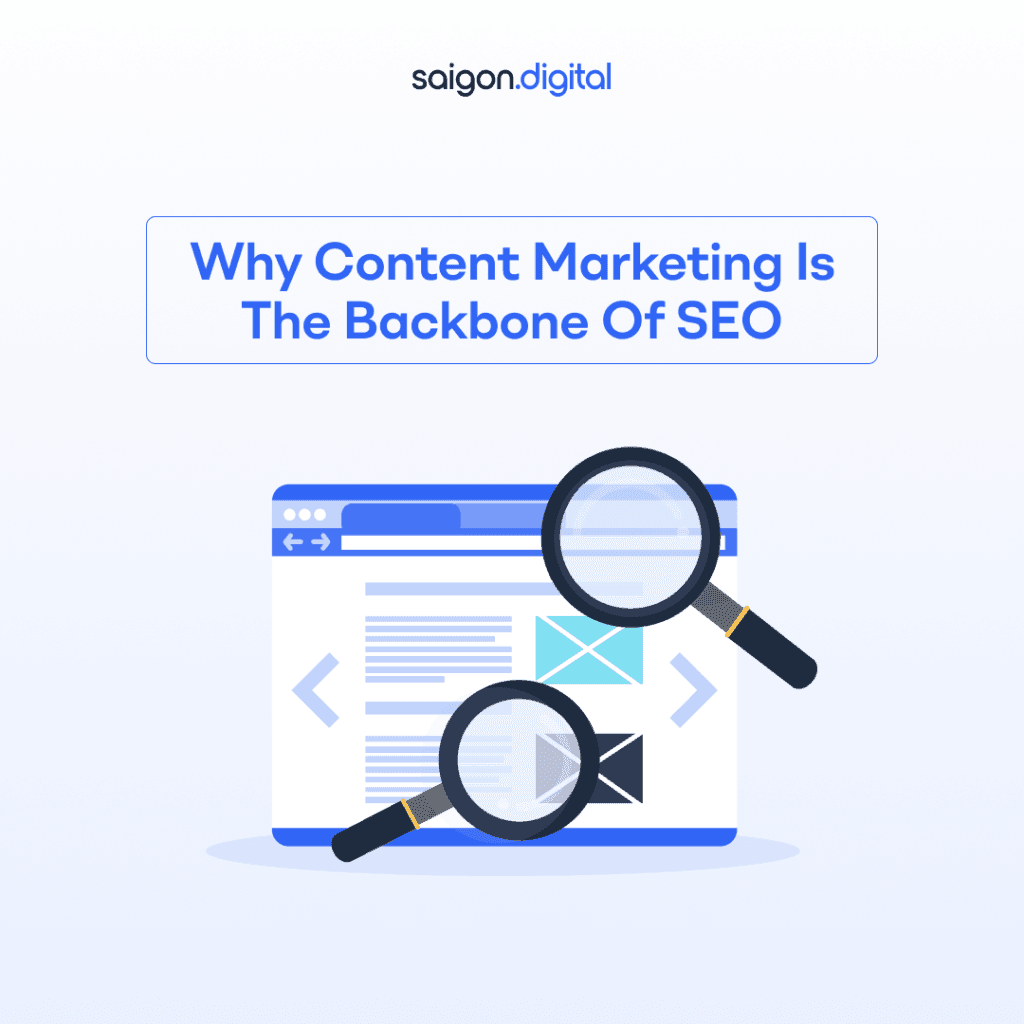
What Is Content Marketing?
Before we explore the relationship between content marketing and SEO, let’s first define what content marketing is. Content marketing is a long-term strategy focused on creating and distributing valuable, relevant, and consistent content to attract and retain a clearly defined audience, and ultimately, to drive profitable customer action. This can include blog articles, videos, podcasts, social media posts, infographics, ebooks, and more. The goal isn’t to sell directly, but to educate, inform, entertain, and ultimately build trust over time. Unlike traditional advertising, which often interrupts the audience, content marketing seeks to meet them where they are, often when they are searching for answers, solutions, or inspiration. So it goes without saying that content is king . Content is what brings people to your website. So it’s also fair to say that having a consistent content marketing strategy is absolutely crucial to the success of your brand.The Core of SEO: Why Content Is So Important
Search Engine Optimisation (SEO) is the practice of improving your website’s visibility on search engines like Google. It involves many technical and strategic components, from improving site speed and mobile-friendliness to earning backlinks. But at the very centre of SEO is one thing: content. Without content, there is nothing to optimise. Search engines need something to crawl, index, and serve to users. Every search query deserves a relevant result, and it’s your content that provides those answers. Here’s where SEO content marketing comes in. It’s the process of creating quality content that is not only valuable to users but also optimised for search engines. This dual focus ensures that your content ranks well and gets seen by the people who are actively looking for what you offer.How Content Marketing Supports SEO
So, how exactly does content marketing influence your rankings and visibility in search engines? The truth is, SEO on its own can only get you so far without a steady stream of valuable content to support it. While technical SEO ensures your website is crawlable and loads quickly, it’s the quality of your content that keeps people engaged. Below, we’ll explore the key ways content marketing actively strengthens your SEO efforts and helps your business grow organically.1. Content Fuels Keywords
Keywords are a fundamental part of SEO. They are the terms and phrases people type into search engines when looking for information. But without content, keywords have nowhere to live. A robust content strategy involves identifying the keywords your target audience is using and naturally integrating them into your content. For example, if you’re a financial adviser in London, a blog post titled “How to Plan for Retirement in England” can target keywords like “retirement planning England” or “financial planning tips”. By publishing excellent quality content targeting specific keywords, you increase your chances of appearing in relevant searches.2. Content Builds Authority
Google wants to rank content from sources that demonstrate E-E-A-T : Experience, Expertise, Authoritativeness, and Trustworthiness. Consistently publishing researched, insightful content helps establish your brand as a credible voice in your industry. Imagine you’re a company that sells eco-friendly cleaning products. Regularly posting articles like “The Hidden Dangers of Conventional Cleaners” or “How to Make Your Home Greener in 10 Simple Steps” showcases your knowledge and builds authority in the eyes of both users and search engines. The more you demonstrate expertise through content marketing, the more likely you are to earn trust, and higher rankings.3. Content Attracts Backlinks
One of the strongest signals Google uses to rank content is backlinks , links from other websites pointing to yours. Informative content naturally attracts these links because people want to reference and share useful resources. For example, a blog post with original research or a comprehensive guide can earn links from journalists, bloggers, and other industry players. These backlinks don’t just boost your SEO, they also bring referral traffic and new audiences to your site. In this way, content doesn’t just support SEO, it actively amplifies it.4. Content Keeps Visitors Engaged
Dwell time, or the amount of time someone spends on your website before returning to search results, is increasingly believed to be a user engagement signal. If someone clicks on your blog post and quickly bounces back to Google, that may signal to the search engine that your content wasn’t helpful. On the other hand, compelling content keeps readers engaged. They scroll, click through to related posts, click through internal links or explore your products or services. This positive user experience sends signals to Google that your site is worth ranking.5. Content Encourages Internal Linking
A solid content marketing strategy gives you more opportunities to use internal linking, pointing from one page of your website to another. This helps users discover more of your content and improves crawlability for search engines. If your site only has a handful of pages, there’s limited scope for internal linking. But if you have a growing library of articles, FAQs, how-to guides, and case studies, you can strategically link between them to boost SEO and avoid orphan pages .Real-World Example: How HubSpot Does It
HubSpot, a leading marketing software company, is a textbook example of how content marketing and SEO work together. They publish hundreds of blog posts, covering every possible aspect of digital marketing, sales, and customer service. Each piece is optimised for specific keywords, backed by solid research, and designed to be helpful. Over time, this approach has helped them dominate search results across thousands of terms. Their organic traffic fuels their lead generation, and their content is the engine behind it all. It’s not about publishing more content; it’s about publishing the right content, consistently and strategically.Content Marketing Is Not a One-Off Tactic
A common mistake many businesses make is treating content marketing as a one-off campaign, writing a few blog posts, then calling it quits. But real results come from sustained effort over time. A long-term content plan built on consistent publishing, ongoing optimisation, and regular performance analysis is what drives meaningful growth. SEO is not a switch you can flip overnight. It’s a slow-burn channel, but when done right, it delivers compounding returns. And it all starts with content.Aligning Content with Search Intent
One of the most powerful ways to improve your SEO through content is to align your articles with search intent, what the user actually wants to achieve with their search. There are four main types of search intent:- Informational: Looking to learn something (e.g. “How to Build an Effective Long-Term SEO Strategy”).
- Navigational: Looking for a specific site (e.g. “Facebook login”).
- Transactional: Ready to buy or take action (e.g. “buy noise-cancelling headphones”).
- Commercial investigation: Comparing options (e.g. “best CRM software for small business”).
The Future Is Driven by Content
As search engines evolve, especially with the rise of AI and machine learning, one thing remains constant: the need for quality, user-focused content. Content is at the heart of it all, no matter if it’s to satisfy Google’s algorithm or to build meaningful relationships with your audience, content is at the heart of it all. Content marketing and SEO are not separate disciplines. They are two sides of the same coin. If your SEO isn’t working, it’s likely your content isn’t either. And if your content isn’t ranking, it’s likely missing an SEO foundation. If you want to future-proof your online presence, start investing in content, not just occasionally, but as a core part of your marketing strategy. Because at the end of the day, Google might be the gatekeeper, but content is the key. At Saigon Digital , we understand the importance of content marketing and SEO. If you want a tailored strategy to go with your brand, we’re happy to help. Reach out today to make the best use out of your website and get your name out there to potential customers. Contact us now!FAQs About Content Marketing
1. Why is content marketing considered the backbone of SEO?
Content marketing provides the material that search engines index and serve to users. Without valuable, relevant content, SEO strategies have nothing to optimise. In other words, content fuels keywords, builds authority, attracts backlinks, and engages users, all of which are essential ranking factors.
2. How does content marketing improve keyword rankings?
Keywords need content to exist. By creating articles, guides, or resources that naturally incorporate the search terms your audience is using, you increase your chances of ranking for those queries. A strong content strategy ensures keywords are integrated in a way that feels useful and relevant, not forced.
3. What role does content play in building trust and authority online?
Search engines like Google prioritise websites that show E-E-A-T (Experience, Expertise, Authoritativeness, Trustworthiness). Publishing consistent, well-researched, and insightful content demonstrates expertise in your field, helps build trust with your audience, and signals credibility to search engines.
4. How does content marketing help generate backlinks?
Quality, shareable content, such as original research, detailed guides, or unique insights, naturally attracts backlinks from other websites, bloggers, and media outlets. These backlinks not only improve your SEO rankings but also drive referral traffic and expand your reach.
5. Why is consistency so important in content marketing?
Content marketing is not a one-time campaign; it’s a long-term strategy. Consistently publishing valuable content helps you stay visible in search engines, build relationships with your audience, and generate compounding SEO results over time. Sporadic posting won’t deliver the same level of impact or authority.





